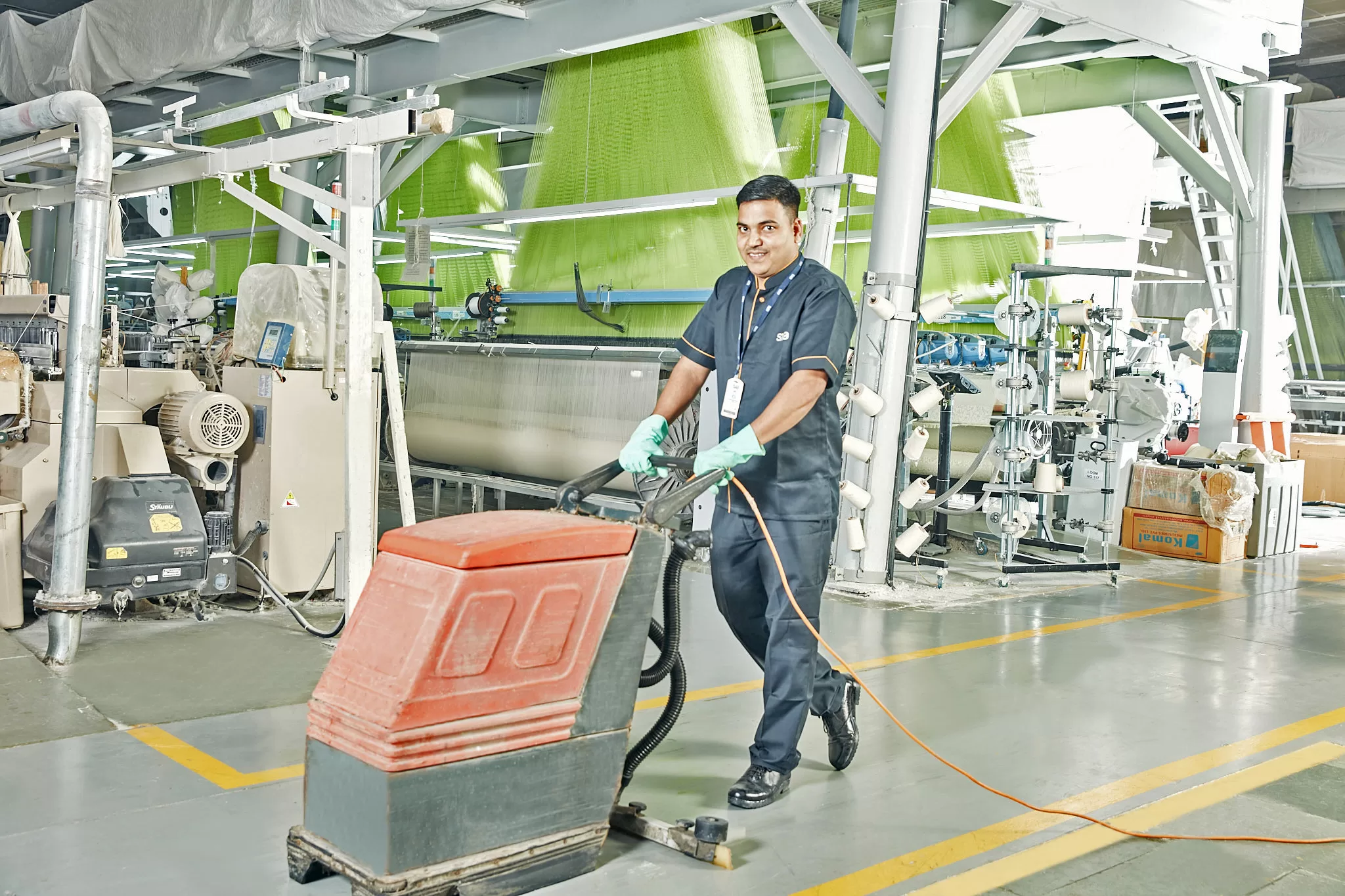1. Introduction
Compliance issues can cause significant challenges for facility management companies in Mumbai, Bangalore, and elsewhere. With the increasing complexity and ever-changing regulatory environment, it is essential for facility management companies to stay ahead of compliance requirements to avoid penalties and reputational damage. Fortunately, there are several effective strategies that can help minimize compliance issues at your facility. In this blog, we will discuss seven strategies that top facility management companies in India are employing to ensure compliance and maintain smooth operations. From integrated facility management services to housekeeping and property management, these strategies will help you navigate the compliance landscape successfully.
2. The importance of compliance in facility management
Ensuring compliance in facility management is of utmost importance for several reasons. Firstly, compliance with regulatory requirements helps to maintain the safety and well-being of occupants and visitors in the facility. By adhering to these regulations, facility management companies can create a secure environment and minimize the risk of accidents or hazards.
Secondly, compliance plays a crucial role in protecting the reputation of the facility management company. Non-compliance can result in negative publicity, damage to the brand’s image, and potential loss of business opportunities. On the other hand, a compliant facility demonstrates professionalism, reliability, and an adherence to industry best practices, which can attract more clients and boost the company’s reputation.
Lastly, compliance helps to avoid costly penalties and legal consequences. Non-compliance can lead to hefty fines, lawsuits, and even the suspension of business operations. By implementing effective strategies and staying updated on regulatory changes, facility management companies can mitigate these risks and ensure long-term business success.
3. Conducting regular compliance audits
To effectively minimize compliance issues at your facility, conducting regular compliance audits is crucial. These audits will provide you with a comprehensive overview of your facility’s adherence to regulatory requirements and enable you to identify any areas of non-compliance that need immediate attention.
During these audits, it is essential to thoroughly review your facility’s policies, procedures, and practices to ensure they align with current regulations. Engaging qualified professionals or third-party auditors can bring a fresh perspective and expertise to the process, enhancing its effectiveness.
As part of the audit process, gather data on past compliance incidents, near misses, and any corrective actions taken. This will help identify any recurring issues or trends that need addressing. Establish a systematic approach to address identified gaps and non-compliance issues promptly.
By conducting regular compliance audits, you can proactively identify and rectify compliance issues, mitigate potential risks, and maintain a high standard of compliance within your facility. Stay tuned for the next strategy in our series!
4. Establishing clear and comprehensive policies and procedures
Having clear and comprehensive policies and procedures in place is another effective strategy for minimizing compliance issues at your facility. These policies and procedures should provide clear guidelines for employees on how to comply with relevant regulations and should address potential compliance challenges specific to your industry.
To ensure the effectiveness of your policies and procedures, make sure they are regularly reviewed and updated to reflect any changes in regulations or industry standards. It is also crucial to communicate these policies and procedures to all employees and provide adequate training to ensure their understanding and adherence.
Establishing a system for employees to report any potential compliance issues or concerns is also essential. Encourage open communication and create a safe and supportive environment where employees feel comfortable reporting any violations or potential non-compliance.
By establishing clear and comprehensive policies and procedures, you can create a culture of compliance and minimize the risk of compliance issues occurring at your facility. Stay tuned for the next strategy in our series!
5. Providing ongoing training and education for staff members
Providing ongoing training and education for staff members is another crucial strategy for minimizing compliance issues at your facility. Regulations and industry standards are constantly evolving, so it is important to keep your employees up to date with the latest developments.
Offer regular training sessions that focus on compliance requirements specific to your industry. This will ensure that employees understand their roles and responsibilities when it comes to compliance. Additionally, provide refresher courses or workshops to reinforce key concepts and address any confusion or questions that may arise.
In addition to formal training sessions, encourage continuous education by providing resources such as articles, webinars, or conferences related to compliance. This will help employees stay knowledgeable and informed about best practices and industry trends.
By investing in ongoing training and education for your staff members, you are equipping them with the necessary knowledge and skills to maintain compliance and minimize the occurrence of compliance issues. Stay tuned for the next strategy in our series!
6. Implementing effective record-keeping systems
Implementing effective record-keeping systems is another important strategy for minimizing compliance issues at your facility. Accurate and organized records are essential for demonstrating compliance with regulations and industry standards.
Ensure that you have a comprehensive system in place to document important information such as employee training records, inspection reports, permits, and certifications. This will not only help you maintain compliance, but also make it easier to provide proof of compliance when requested by regulatory agencies.
Consider using electronic record-keeping systems that offer features such as automated reminders for expiration dates and easy retrieval of documents. These systems can streamline the record-keeping process and reduce the risk of errors or missing information.
Regularly review and audit your record-keeping systems to identify any gaps or areas for improvement. Make necessary updates and provide additional training to ensure that all employees understand the importance of accurate and complete record-keeping.
By implementing effective record-keeping systems, you can enhance your facility’s compliance efforts and minimize the likelihood of compliance issues arising. Stay tuned for the final strategy in our series!
7. Maintaining open lines of communication with regulatory agencies
Effective communication with regulatory agencies is crucial for minimizing compliance issues at your facility. Regularly reaching out and establishing open lines of communication can help you stay updated on any new regulations or changes that may impact your operations.
Consider attending industry conferences or seminars where you can interact with regulatory agency representatives. This provides an opportunity to ask questions, seek clarification on regulations, and address any concerns or challenges you may be facing.
Maintaining open communication also allows you to stay informed about any inspections, audits, or compliance reviews that may be scheduled for your facility. By being proactive and prepared, you can ensure that your operations are in full compliance and minimize the risk of any potential penalties or violations.
In the final section of our series, we will discuss the importance of regular staff training and education in minimizing compliance issues. Stay tuned for our next blog post!
8. Utilizing technology to streamline compliance processes
In today’s digital age, technology plays a vital role in streamlining various business operations, including compliance management. By leveraging the power of technology, you can effectively minimize compliance issues at your facility and ensure a smooth and efficient compliance process.
One way to utilize technology is by implementing an automated compliance management system. This system can help you track, monitor, and manage various compliance requirements, such as permits, licenses, inspections, and audits. It can send automated reminders for upcoming deadlines, assist in document organization, and generate reports to demonstrate compliance to regulatory agencies.
Additionally, technology can also help with data management and analysis. By utilizing data analytics tools, you can identify trends, patterns, and potential compliance risks. This can help you proactively address these issues before they escalate into major compliance problems.
9. Constantly monitoring and adapting to changes in regulations
In the ever-evolving landscape of compliance regulations, it is crucial to stay vigilant and adapt to changes in regulations that affect your facility. Failing to keep up with regulatory updates can result in compliance issues and potential legal consequences.
One effective strategy for minimizing compliance issues is to establish a process for monitoring and reviewing regulatory changes on a regular basis. This can involve subscribing to industry newsletters, attending conferences or webinars, and actively engaging in industry forums. By staying informed about upcoming changes, you can take proactive measures to update your compliance practices and procedures accordingly.
Furthermore, it is important to continuously evaluate and assess the effectiveness of your compliance strategies. Regularly conducting internal audits and compliance assessments can help identify any gaps or areas for improvement. By regularly reviewing and updating your compliance program, you can ensure that it remains robust and aligns with the latest regulatory requirements.
10. Conclusion: Take proactive steps to minimize compliance issues in your facility
In conclusion, minimizing compliance issues at your facility requires proactive measures and a commitment to staying informed and updated on regulatory changes. By establishing a process for monitoring and reviewing regulatory updates, you can take timely actions to adapt your compliance practices. Regular internal audits and assessments help to identify areas for improvement and ensure that your compliance program remains effective and aligned with regulatory requirements.
However, it is equally important to focus on fostering a compliant culture within your organization. This can be achieved through proper employee training and education. By providing comprehensive training programs that cover relevant compliance topics and regulations, you can empower your staff to make informed decisions and take responsibility for compliance. Regularly reinforcing these training initiatives and providing ongoing education will help create a culture of compliance where everyone understands the importance of adhering to regulations.
By implementing these strategies, you can minimize compliance issues and protect your facility from potential legal consequences. Stay tuned for our next blog section, where we will delve deeper into effective employee training strategies.
SILA adopts a tech-driven approach, utilizing Robotics and IoT, Automated Compliance Management, and our proprietary technology (SILA Connect) to efficiently manage properties across India. As pioneers in technology within the facility management sector, SILA stands out as one of the top facility management companies in india
To delve deeper into our integrated facility management services, click here.
Industries We serve –
Commercial Offices & Buildings | Manufacturing & Heavy Industrial Facilities | Residential Complexes & Townships | Hotels & Campuses | Airports & Malls | IT Parks & Data Centers | Warehousing & Logistics Parks | Banks & Retail
Present in 125 cities –
Ahmedabad | Baroda | Bengaluru | Chennai | Bhubaneswar | Delhi | Gurugram | Noida | Kolkata | Hyderabad | Kochi | Mumbai | Pune & more
Get a free quote today, to reduce your facility management cost.
1. What are the key challenges faced in Facility Management?
Challenges may include maintaining ageing infrastructure, ensuring compliance with industry regulations, optimizing energy usage, managing risks associated with hazardous materials, and adapting to technological
2. What strategies are used to ensure safety in facilities?
Safety protocols, regular safety training for occupants of the space, implementation of proper equipment maintenance schedules, conducting risk assessments, and compliance with safety regulations are some strategies employed to maintain a safe working or living environment.
3. How does Facility Management contribute to sustainability?
FM practices focus on reducing waste generation, optimizing energy consumption, adopting eco-friendly technologies, and implementing recycling programs, thereby contributing to environmental sustainability.
4. What are the benefits of outsourcing Facility Management services?
Outsourcing FM services can provide specialized expertise, cost-effectiveness, access to advanced technology, scalability, and the ability to focus on core business activities while experts manage facility operations
About SILA -
A Real Estate platform driven by an entrepreneurial spirit.
Our businesses include Real Estate Services which offer Facility Management, Contracting Solutions and Real Estate Advisory. Our other business is Real Estate Development. We have a diverse client base in various sectors which include large Corporates, Real Estate Funds, Landowners and Developers.
Over the last decade, SILA has scaled efficiently, managing over 150 million square feet of assets, with over 20,000 employees pan India. The platform is backed by Norwest Venture Partners and Samara Capital Group in our Real Estate Services and Development arms, respectively.
SILA is one of the best facility management companies in Mumbai, Bengaluru, Delhi, Chennai, Hyderabad, Pune & more.
SILA is among the top facility management companies in India, offering comprehensive property management services and housekeeping solutions. As a leading facilities management company, SILA provides tailored FM solutions, including housekeeping services in Mumbai. Leveraging our expertise, we ensure seamless property management for clients nationwide. Whether you require housekeeping agency support or specialized facility management solutions, SILA delivers excellence in every aspect of your property’s upkeep and maintenance.
About Author -

Aniket Sheth
The insightful content in this blog is curated by Aniket Sheth, our esteemed Senior Vice President of Operations. With an impressive professional journey spanning over 13 years, Aniket has held key positions at prestigious brands, showcasing his exceptional leadership skills.
Aniket’s educational background is marked by an MBA from Cornell University, which laid the foundation for his successful career. He began his professional journey at EY in New York, contributing significantly to enhancing and implementing engagements for Fortune 500 companies.
Aniket’s strategic acumen, proficiency in asset management, and forward-thinking innovation have been instrumental in helping companies streamline their operations and achieve substantial cost reductions. His wealth of experience brings a unique perspective to the world of facilities management, making his insights invaluable for businesses seeking operational excellence.


